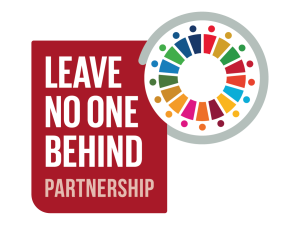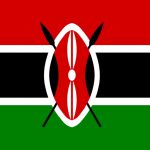20 October 2020
Launched during the UN’s Virtual World Data Forum, a virtual exhibition created by the Leave No One Behind Partnership highlights the potential of community-driven data for empowering marginalized groups. The ‘Making Voices Heard and Count’ exhibition features research findings, stories, and interviews with community workers and experts in five countries: Bangladesh, India, Kenya, Nepal, and Viet Nam.
The International Civil Society Centre coordinates the Leave No One Behind Partnership, which brings together 12 international and national civil society organizations (CSOs), civic networks, and platforms to fill data gaps on marginalized groups in SDG monitoring and review. The Partnership is supporting national coalitions in five countries to drive research on marginalized communities to close knowledge gaps, analyze local drivers of vulnerability, and derive concrete recommendations for public policymaking and planning.
The virtual exhibition showcases these national projects with a collection of interviews, summaries of past and current research projects, publications, and stories that also reflect the experiences of marginalized groups amid the COVID-19 pandemic.
The site provides dedicated space to voices from each of the five action countries.
- In Bangladesh, researchers have collected data for “community scorecards,” representing views of marginalized groups on health coverage in 64 districts throughout the country. The scorecards aimed to inform government decisions on more inclusive public services. In her interview for the exhibition, Evana Ezzat Tanzila of BRAC Bangladesh explains that community-driven data can help identify policy gaps that make marginalized communities particularly vulnerable in emergencies such as the COVID-19 pandemic.
- In India, the country coalition launched research in 100 “hot spots” to understand social exclusion and vulnerabilities affecting 20 social groups, including: scheduled and vulnerable caste and tribe communities; nomadic tribes; vulnerable children; transgender people; bonded laborers; people with disabilities; religious minorities; and vulnerable women. Annie Namala, Wada Na Todo Abhiyan, outlines how this research can help local governments use resources more effectively while also raising awareness of these groups’ challenges among national politicians.
- Kenya’s project convened community dialogues in five sites to gather views of citizens and marginalized groups on social, economic, and political inclusion (SDG target 10.2), focusing on women, people with disabilities, young people, farmers, elderly people, and slum-dwellers. Florence Syevuo, Kenya SDGs Forum, reports that community-driven data has enabled local communities to advocate for concrete solutions to healthcare needs.
- In Nepal, the country coalition engaged local women’s groups from three provinces in monitoring 41 indicators on gender equality (SDG 5) with an emphasis on young women and girls. Suran Maharjan, VSO Nepal, describes how the initial research plan to collect data on marginalized youth was disrupted by COVID-19, but the results nonetheless amplified marginalized voices in the consideration of the SDGs by national decision makers.
- In Viet Nam, partners’ research showed that national reporting overlooked complex socio-cultural and language barriers to social, economic, and political inclusion. The video explains how community-driven research helped create a meaningful dialogue between local communities and government decision makers.
The exhibition website also includes a growing collection of stories by other organizations, partners, and representatives of marginalized communities sharing their insights and experiences on making the promise to “leave no one behind” a reality.
The Virtual UN World Data Forum is taking place from 19-21 October 2021. Participants can register on the World Data Forum website. [Voicescount.org][Leave No One Behind Partnership][Virtual World Data Forum]
This article will be cross-posted at the global SDG Knowledge Hub of IISD as part of a series of publications from the Leave No One Behind partnership.








